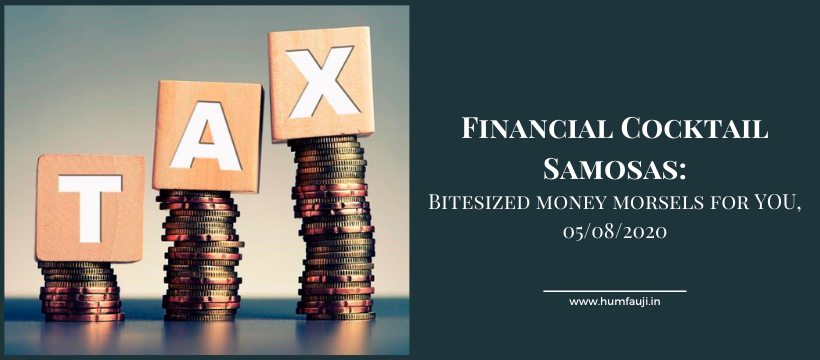Income Tax Return (ITR) for the Financial Year (FY) 2018-19 can be filed till 30th September 2020
If you have not filed your income tax return (ITR) for the financial year (FY) 2018-19 because of any reasons, don’t worry you can file a belated return till 30 September 2020. This is the third time that the Central Board of Direct Taxes (CBDT) has extended the last date for filing belated ITR for the FY 2018-19. At first, the original deadline of March 31, 2020, was extended to June 30, 2020, then to July 31, 2020 and now it has been further extended to September 30, 2020. A return filed after the due date (typically 31st July of the following year or Assessment Year, unless extended officially) is known as belated return.
The extension has been given to taxpayers keeping in mind the hardship of taxpayers, due to the outbreak of Covid-19. So, make use of the extension to complete your statutory obligation. As per experts, the deadline is unlikely to get extended further.
Did you know you can claim tax deductions against your FD and SCSS investments?
Once you retire, it doesn’t mean you are also retired from paying income tax and filing an income tax return. You may have stopped receiving salary, but that might have been replaced by a pension. Besides that, you may have income from various investments in the form of interest, dividends and capital gains among others, which will continue to attract tax. Therefore, tax planning will continue to be a part of your overall financial plan.
A five-year bank or post office fixed deposits, which can pay regular interest, and Senior Citizen Savings Scheme, which offers quarterly interest, are two such investment avenues which are typically an integral part of a senior’s financial portfolio. The added advantage is that both these products also provide tax deduction under Section 80C of the Income Tax Act, 1961. Additionally, interest earned up to Rs 50,000 from these instruments is exempt from tax under Section 80TTB of the Act for senior citizens.
What is an exchange traded fund (ETF)?
Exchange-traded fund (ETF) is a kind of mutual fund, which is listed on stock exchanges (BSE or NIFTY) and can be traded just like a stock. Also, while mutual fund’s net-asset value (NAV) is calculated after the end of each trading day, an ETF’s price may keep changing throughout the day, based on demand and supply, just like a share (or stock).
Not only can an ETF be traded in an exchange, different ETFs mimic different indices such as the Nifty ETF, which invests in the same proportion in those 50 stocks that constitute Nifty. While most of these ETFs are expected to give similar returns to the indices they mimic, it may vary to some extent based on the efficiency of the ETF – the gap between the two is called the Tracking Error. Before investing in such instruments take advice from a trusted financial advisor whether it is suitable for you and your portfolio.


